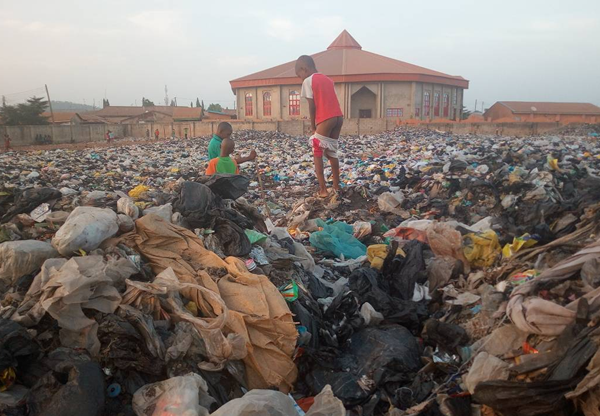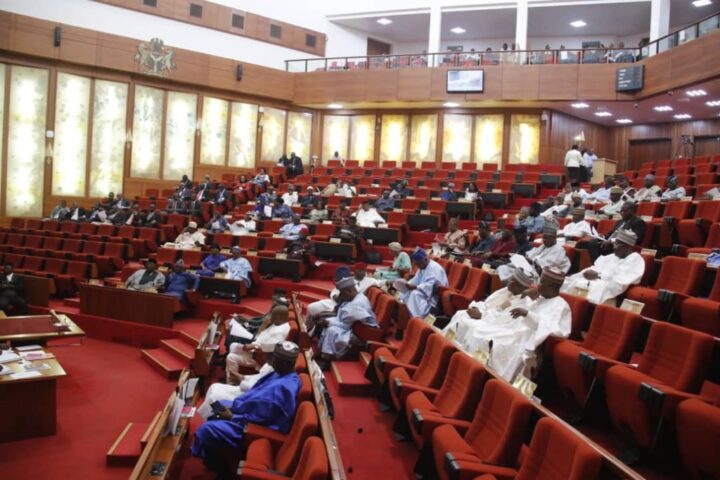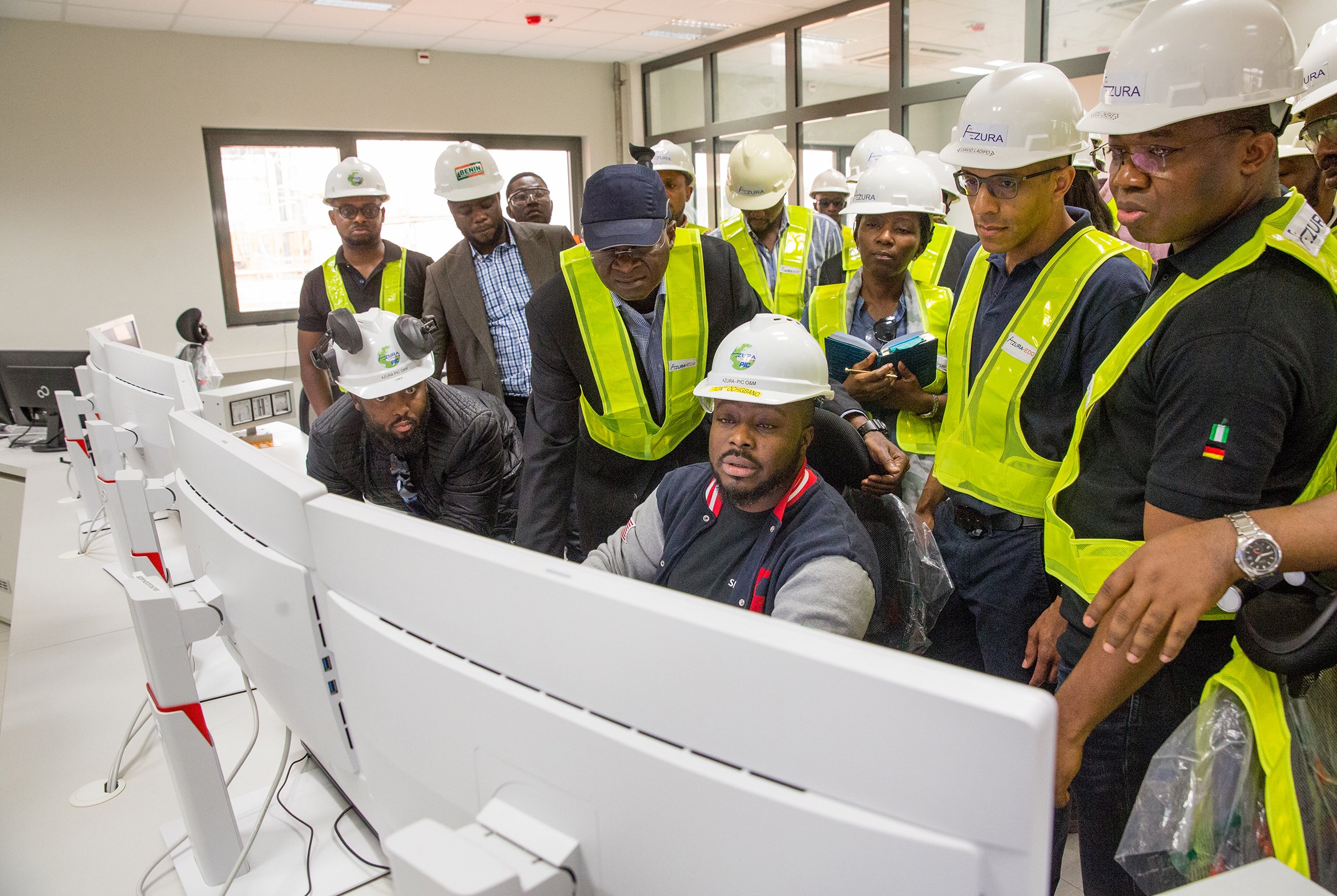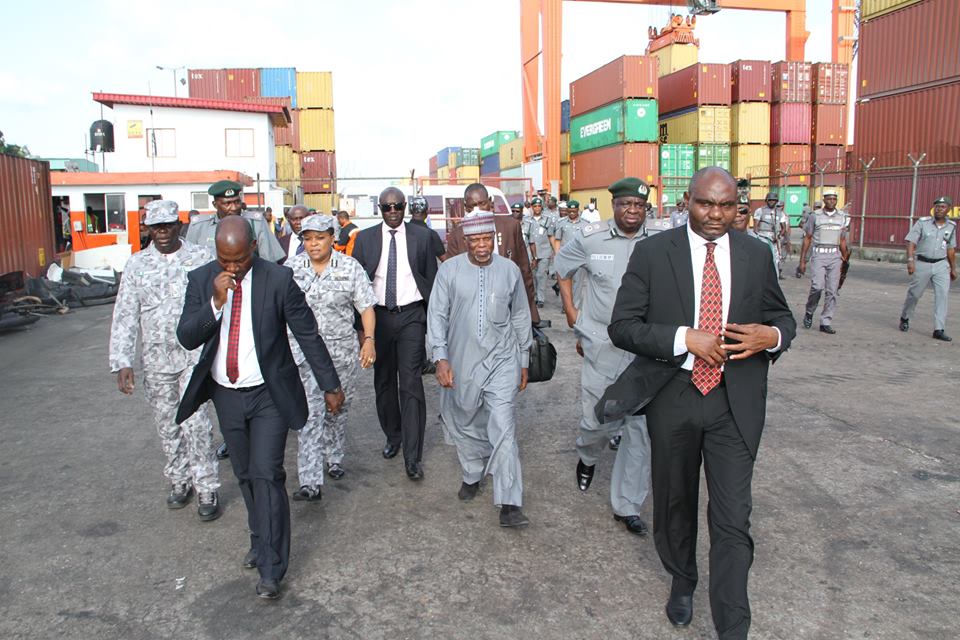The sad trend of open defecation in some parts of the city
The sun was just beginning to rise across Obutong Beach community in Calabar, Cross River state, when Ability Asuquo managed to get out of his bed with sleepy eyes, dragging himself out and across a bushy path that leads to the big river the community.
Unlike the men who were already by the river bank, setting out to fish, nor the women who came with containers to fetch water, Asuquo had come for a different business. As his eyes darted around the bush like an eagle hunting a prey, he found a convenient spot with a drainage-like structure. With legs spread across the structure, he pulled down his shorts, using one hand to clear some grass, the only obstacle on his way as he is about defiling mother nature. He then squatted, directing his buttocks to one side and began to defecate right there, few steps away from the river which serves the community of about 1,000 people.
Like Asuquo, one, two, three and many other villagers gradually find their way down to the river side, each coming to offload and letting the water do justice to the fecal matter by washing them away in what is sadly their daily routine.
“This is where we usually go to shit whenever we want to, I was here yesterday sef,” he told TheCable during a recent visit to the community as he points to various directions by the riverside as if he was selling land. “We’ve never had toilet before, it’s just a few people in this community that has … na so we see am.”
Advertisement
This might cause you some migraine: About one in four Nigerians — representing 47 million citizens — still practise open defecation, according to the 2018 WASH National Outcome Routine Mapping (WASH NORM) survey done by the World Health Organisation and the United Nations Children’s Fund (UNICEF). Out of the 774 local government areas in Nigeria, only 13 do not practise open defecation representing barely 2 percent of all the LGAs.
In August, UNICEF said Nigeria ranked second among countries practising open defecation globally, but it might have overtaken India which held that position but has now declared it is open-defecation-free, although the claim is being questioned. Even Suleiman Adamu, minister of water resources, raised that concern while declaring open a two-day private sector forum on sanitation.
Every year, 1.3 percent of Nigeria’s gross domestic product (GDP) amounting to about N455 billion is lost to poor sanitation, according to a World Bank report which also states that open defecation alone costs Nigeria over US$ 1 billion annually.There are of course grievous health risks that come with open defecation. According to UNICEF, while fecal contamination and poor sanitation is a leading cause of child mortality, disease, under-nutrition and stunting, women and girls who indulge in the practice are also exposed to the danger of physical attacks and rape.
Advertisement
Nigeria has been doing its bit to ending the menace though. The federal government and key stakeholders such as UNICEF have over the years introduced useful policies and actions in the hope that the country will get rid of open defecation and improve sanitation generally. There were the National Water Supply and Sanitation Policy, the National Environmental Sanitation Policy and the National Health Promotion Policy to name just a few. Perhaps, the most dedicated of these measures is the Clean Nigeria Campaign launched by the federal government to make Nigeria open-defecation-free (ODF) by 2025.
The campaign which was launched in March this year was introduced after President Muhammadu Buhari had declared a state of emergency on Nigeria’s water supply, sanitation and hygiene (WASH) sector while inaugurating the national action plan for revitalisation of that sector.
‘CLEAN NIGERIA, USE THE TOILET’… THAT NIGERIA MAY END OPEN DEFECATION BY 2025
While the ‘clean Nigeria’ campaign goes on, the national road map which guides that campaign and which was launched by the federal government in partnership with UNICEF suggests a number of ways this could be achieved including political will, sanitation policy, long-term vision and investment plan, need-based budgeting, well-defined organisational structure, a robust review and monitoring system as well as effective coordination among stakeholders.
Advertisement
But there are more concrete steps that need to be taken. The road map states that Nigeria needs a total of N959 billion to end open defecation by 2025, out of which N725 billion will be incurred by households for domestic latrines while government at various levels is expected to contribute about N234 billion or around 23.4 billion annually.
This is, however, far from being realistic going by current trends. Even the policy document admits that “at the present rate of progress, reaching the goal of open-defecation-free Nigeria by 2025 seems to be a far cry unless there are drastic shifts in the approach and strategy pursued in the past.”
Despite the current realities, a lot of experts including Bioye Ogunjobi, UNICEF WASH specialist, are optimistic that Nigeria can still be declared open-defecation-free by 2025. “If India could address open defecation among 550 million people within four years, surely, it is possible for Nigeria to end open defecation giving the number of people who practise it,” he told TheCable via an email interview.
Ogunjobi added that apart from the need to cater to a number of other development issues as well, quite a number of Nigerians are ignorant of the dangers of open defecation much less seeking ways to contribute to ending the menace.
Advertisement
“Many Nigerians are not aware of the social and economic impact that open defecation has on the country,” he said, as if talking about what could be the fate of villagers in Obutong Beach.
“There is also a low level of awareness about the ‘Clean Nigeria: Use the Toilet’ campaign’. As a result, they do not know why we must stop defecating in the open.”
Advertisement
UNICEF TO THE RESCUE
Out of the 13 LGAs that have been declared open-defecation-free, 13 percent of them are said to have attained that status through UNICEF interventions — and the organisation is doing a lot to ensure others get to that level as well, Ogunjobi said.
Advertisement
“UNICEF is supporting Bauchi, Katsina, Jigawa and Kaduna to develop a state-wide ODF plan. UNICEF is also working with the federal government to engage the private sector to play a significant role using their platforms to promote key sanitation messages and leveraging their corporate social responsibility to support interventions in states to end open defecation.”
State governments are also making efforts to ensure their people have access to toilets. In Edo, for instance, Godwin Obaseki, the state governor, just launched the open defecation free (ODF) roadmap, and the water sanitation and hygiene (WASH) emergency declaration.
Advertisement
WHAT CAN NIGERIA LEARN FROM INDIA?
As of 2014, not less than 600 million people in India had no access to toilet. Open defecation was widespread that Indian Prime Minister Narendra Modi had to launch an ambitious campaign aimed at providing almost half of India’s 1.3 billion population access to a toilet in just five years. Only recently, the Indian government declared the country open-defecation-free, saying it had built more than 110 million toilets in those years.
The importance of behavioural change campaign and political will in India cannot be understated in the country’s journey to ending open defecation as this report finds. The private sector was also not left out. Like Zaid Jurji, chief of WASH at UNICEF Nigeria, puts it, “the private sector can bring a wide spectrum of skills that the public sector usually lacks; innovation, efficiency, effectiveness, trust and confidence, to name a few.”
He advised that, if Nigeria hopes to succeed in ending open defecation, then there is a need for the private sector to “work closely with the government, states and local authorities and communities to actively create sustainable solutions to address the WASH needs of unserved and underserved communities through the lens of corporate social responsibility (and) public private partnerships (PPP).”
For Nigeria to be open-defecation-free by 2025, 102 million additional people are expected to have to have access to toilets between 2015 and 2025. But with about 46 percent of the citizens trapped in extreme poverty, many like Asuquo and most residents in Ubutong Beach are finding it difficult to escape from this menace. “There are toilets but very few, houses with toilets are usually expensive,” he tells TheCable as he walks the reporter away from the riverside. “Not like we don’t need toilet but our major problem is schools and hospitals. We fit dey manage with the river as things dey now.”
Chinedu Asadu covers politics and development for TheCable. He can be reached via @chinedu_asadu.
Add a comment







